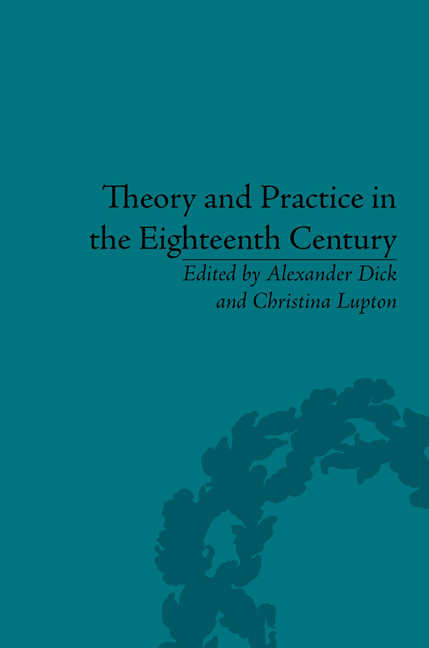Book contents
- Frontmatter
- CONTENTS
- Notes on Contributors
- Introduction
- I Writing Philosophy
- II Reading Hume
- III Thinking Literature
- 9 The Epistemology of Genre
- 10 The Primitive in Adam Smith's History
- 11 Can Julie Be Trusted? Rousseau and the Crisis of Constancy in Eighteenth-Century Philosophy
- 12 After the Summum Bonum: Novels, Treatises and the Enquiry after Happiness
- 13 Music vs Conscience in Wordsworth's Poetry
- Notes
- Works Cited
- Index
12 - After the Summum Bonum: Novels, Treatises and the Enquiry after Happiness
from III - Thinking Literature
- Frontmatter
- CONTENTS
- Notes on Contributors
- Introduction
- I Writing Philosophy
- II Reading Hume
- III Thinking Literature
- 9 The Epistemology of Genre
- 10 The Primitive in Adam Smith's History
- 11 Can Julie Be Trusted? Rousseau and the Crisis of Constancy in Eighteenth-Century Philosophy
- 12 After the Summum Bonum: Novels, Treatises and the Enquiry after Happiness
- 13 Music vs Conscience in Wordsworth's Poetry
- Notes
- Works Cited
- Index
Summary
Perhaps no philosophical problem in the eighteenth century enjoyed more popular appeal than the problem of happiness. The question was taken up in a wide range of texts, including philosophical treatises, periodical essays, sermons, epistles, dramatic poems, letters, journals, allegories and prose fiction. More than one historian has deemed happiness an ‘obsession’ of the age. While this scholarship has tended to focus on France, a casual search of the British Library catalogue suggests that the literature on happiness was equally vast on this side of the Channel. With titles such as An Enquiry after Happiness, An Essay on Happiness and The Way to Happiness, these works could run to three and four volumes and go through as many as fourteen reprints. So abundant was this literature that by the latter half of the century some writers acknowledged that their reader might be ‘impatient to know … what can be added to the many treatises, ancient and modern, that have been wrote upon it’. But no one doubted that the culture's appetite for such works remained undiminished. When Samuel Johnson needed to write a money-maker, he knew exactly what he was doing when he selected happiness as his theme in Rasselas.
Fred Parker reminds us that ‘philosophy and literature were often on unusually friendly terms’ during the period, and that ‘any line of demarcation between them sometimes disappeared altogether’. This is especially true of writings on happiness. Not only did eighteenth-century enquiries after happiness assume a wide variety of forms, but individual works themselves were often generically unstable or hybrid in nature. Henry MacKenzie's ‘The Pursuits of Happiness’ (1771), for example, takes the form of a verse epistle addressed to a friend, and as such it belongs comfortably to the world of literature. At the same time, however, it is steeped in the philosophy of the Scottish Enlightenment and enters into a dialogue with more theoretical accounts of happiness – such as the ‘doubts deistical’ he finds in the writings of ‘Father Chubb’ – as if demanding to be read as a work of philosophy in its own right. John Norris's An Idea of Happiness (1684), to approach the matter from the other direction, is clearly a work of religious and philosophical speculation.
- Type
- Chapter
- Information
- Theory and Practice in the Eighteenth CenturyWriting Between Philosophy and Literature, pp. 211 - 224Publisher: Pickering & ChattoFirst published in: 2014



